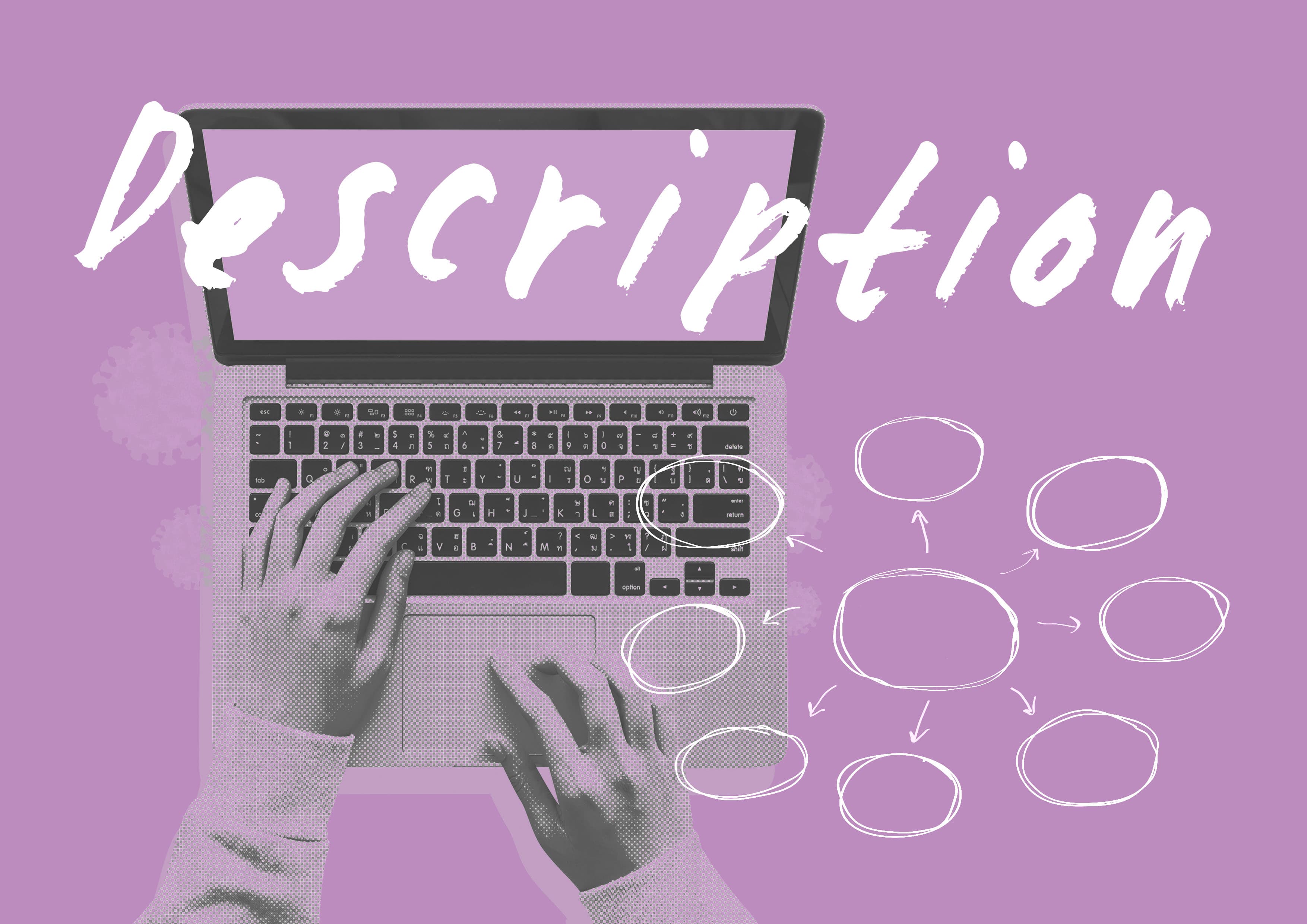Description

A working definition of description
Careful and accurate description is the bedrock of social work records. All kinds of description are essential, focusing on what has happened, who is involved, when events took place and for how long. This involves writing descriptions of people, their physical and mental states, as well as documenting what the social worker has said and done. Description is often thought of as relatively straightforward to write, but it is in fact, quite complex, involving a lot of time and thought. It is impossible to describe everything that you observe (you would need two lives, one for living and one for documenting all that living). To describe everything that is potentially relevant to understanding a specific situation involves selection. Making decisions about exactly what to describe and how is already part of the analytic process.
Lisa Lewis, an experienced social worker talks about the importance of description in written records
Video: What is Description
A key point Lisa makes is that description is not just about important background information. Description of relevant details is evidence. It is the careful and relevant descriptive detail that you provide that will be used as evidence in any explanation, claims made and conclusions reached.
Video: Description always involves professional judgement
Lisa talks about description always involving professional judgement. This means that writing good description takes time to learn. The more experienced the social worker is, the easier she may find it to decide which particular aspects of a situation need more or less detail. It also means that if you are earlier in your professional career, you may find it useful to have support to learn what counts as relevant description e.g. with your manager, supervisor or mentor giving you explicit feedback on your writing.
Video: Description is not straightforward
Lisa talks of ‘too much description’ and how this may negatively affect how the record is written. By ‘too much description’, Lisa points to vague or ‘flowery’ language, comments which do not seem to help the reader’s understanding of a particular situation. Lisa emphasises that too much unhelpful description can generate a negative response in readers, which may be highly consequential e.g. leading a panel to reject a particular recommendation.
Thinking about the language of description
The kind of language used to accurately and fairly describe a situation is usually as ‘neutral’ as possible. Of course, no words or phrases are ever completely neutral but we can certainly think of some being more neutral than others. Consider the two lists below of commonly used words and phrases in social work records and whether you agree with them being labelled ‘neutral’ or ‘evaluative’.
Examples of commonly used ‘neutral’ words in written records
awaiting, bail, belongings, bruising, co-funding, completed, discharge, discharged, Facebook, finances, follow up, home-environment, homeless, hygiene, invoice, laundry, look into, meals, medication, monitored, prescribed, prioritise, receives, rehab, requires,reside, residing, safeguarding, tenancy ,toilet, top-up, unwell, urine, utilise, suffers, verbally, wheelchair
Examples of commonly used ‘evaluative’ words in written records
abusive, allegation, appropriately, ascertain, behaviours, clean and tidy, CSE (Child sexual exploitation) deteriorated, due to, DV (domestic violence) engaging, enjoys, high-risk, incidents, independently, manage, misuse, needs, prompting, routines, struggles, supervision, unable, unsure, wellbeing
From Maria Leedham, Theresa Lillis, Alison Twiner (2020) Exploring the core preoccupation of social work writing: A corpus-assisted discourse study. Journal of Corpora and Discourse Studies, 2(1):1–30
Of course, whether words are considered ‘neutral’ or expressing a negative or positive connotation depends on the rest of the text, and the perspective of the reader. It may be surprising to think of ‘routine’ as an evaluative term but it’s clear from an analysis of written social work documents that ‘routine’ is always used with positive connotations. ’Routines’ seems to indicate a level of order and normality, thus the word ‘routines’ is used to refer to regular patterns of behaviour that are viewed positively.
The main point to remember is that language is the core stuff of written records and conveys not just information, but particular perspectives on a situation, so it’s important to choose words carefully. And while using neutral language is important – providing a careful and accurate description is crucial – it may also be appropriate to use evaluative language in order to convey a particular perspective. If you decide to use an evaluative word or phrase, you need to make sure you include sufficient descriptive evidence to justify the use of such language.
Practical exercise: Description
Take a look at a recent record (a case note, an assessment report) where you have described a particular situation.
- Does the detail you have provided give a clear account of that situation?
- What details have you included and why?
- What have you decided not to include and why not?
- Is there any language you have used that you think is evaluative or judgmental, rather than ‘neutral’?
- If you have decided to use an evaluative word or phrase, have you included sufficient detail to justify this use?
Iriss is a charitable company limited by guarantee. Registered in Scotland: No 313740. Scottish Charity No: SC037882. Registered Office: 5 South Charlotte Street, Edinburgh. EH2 4AN.